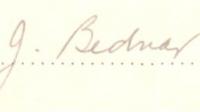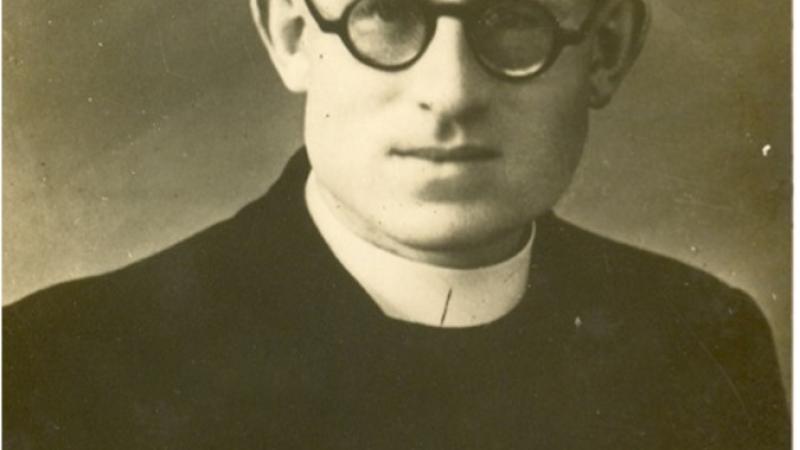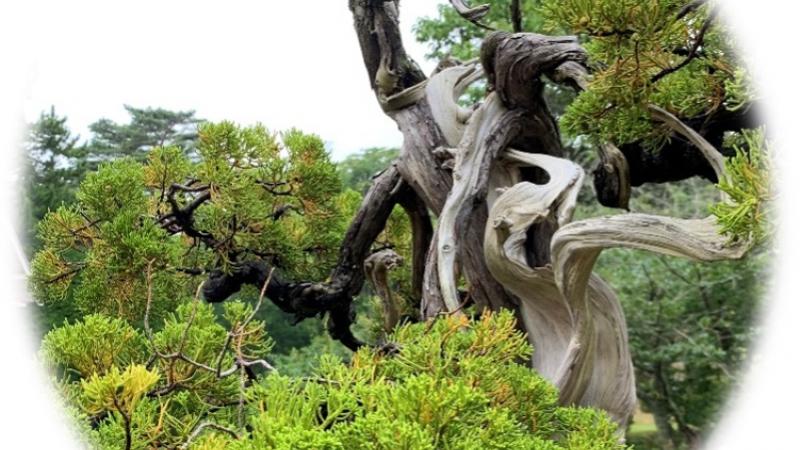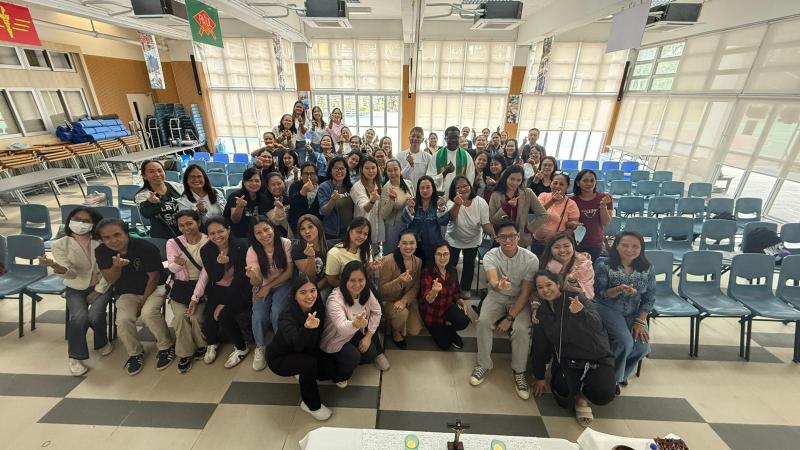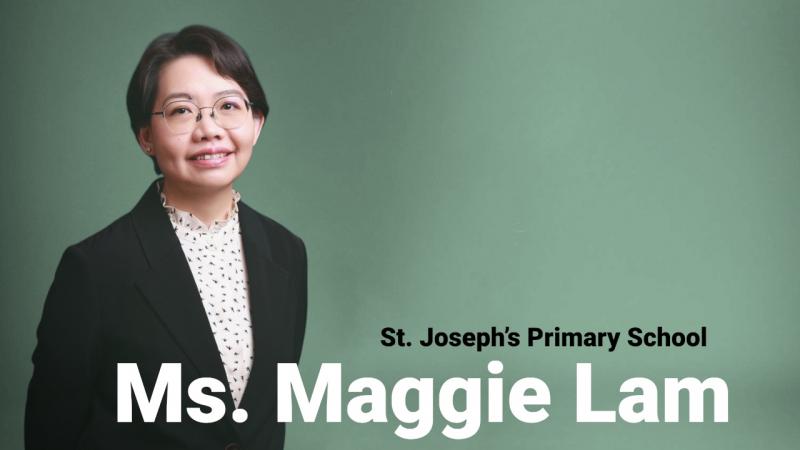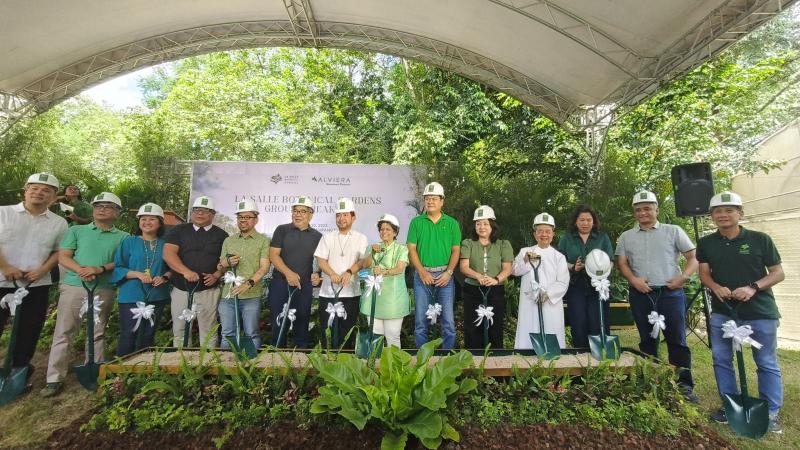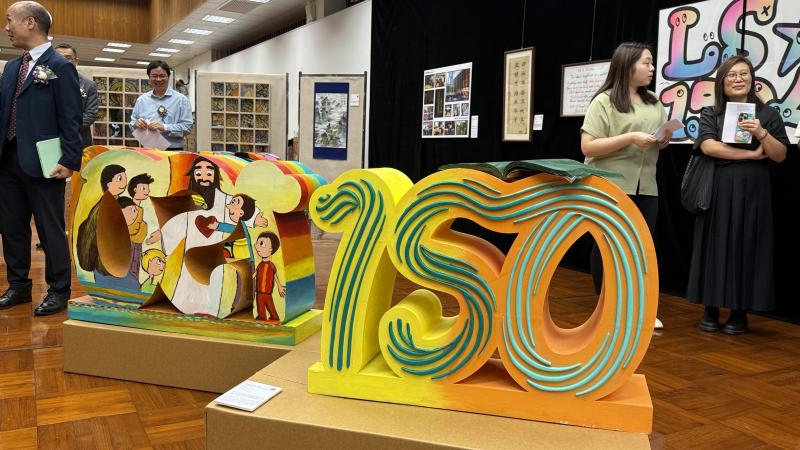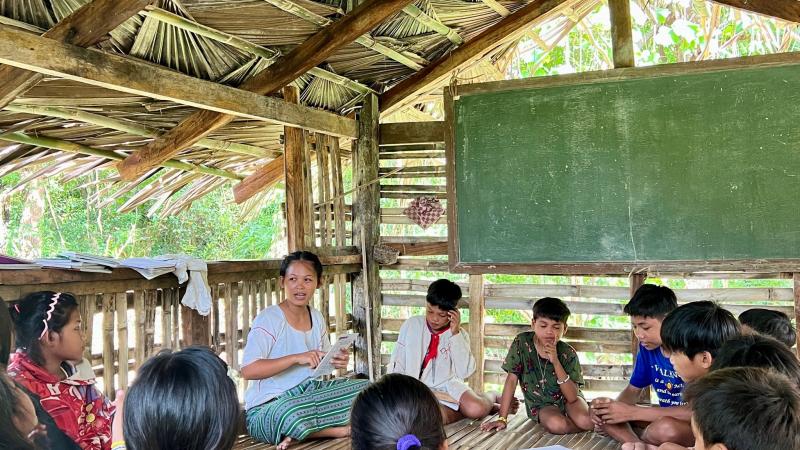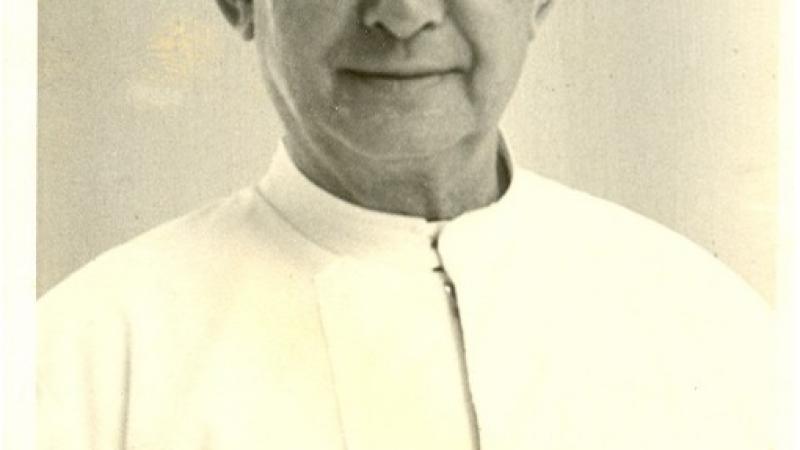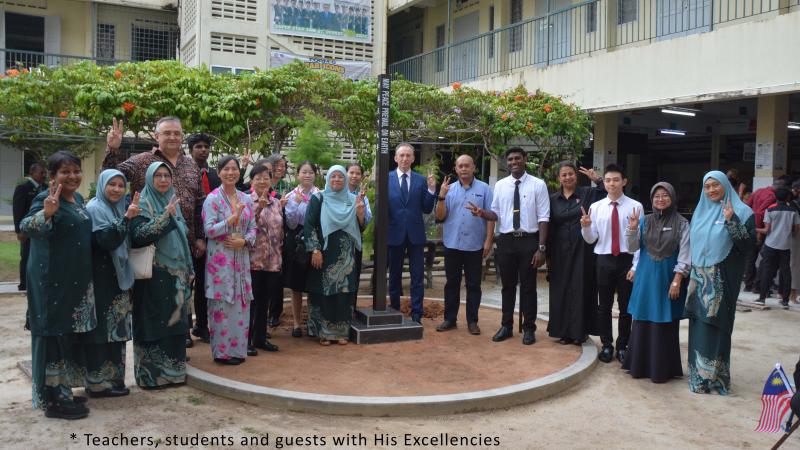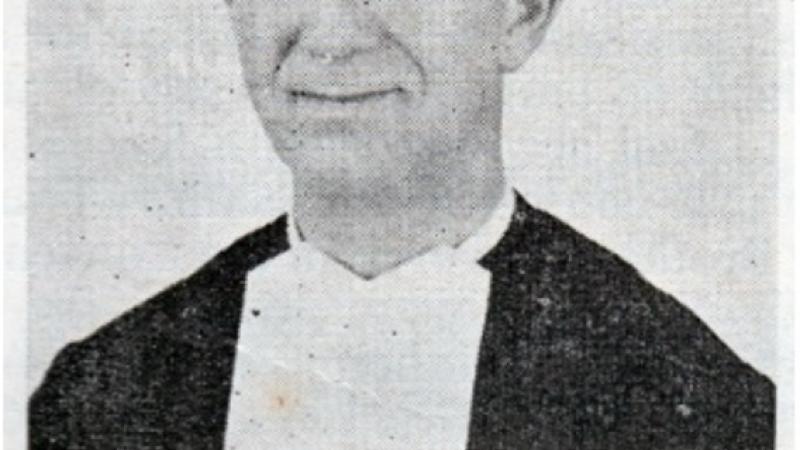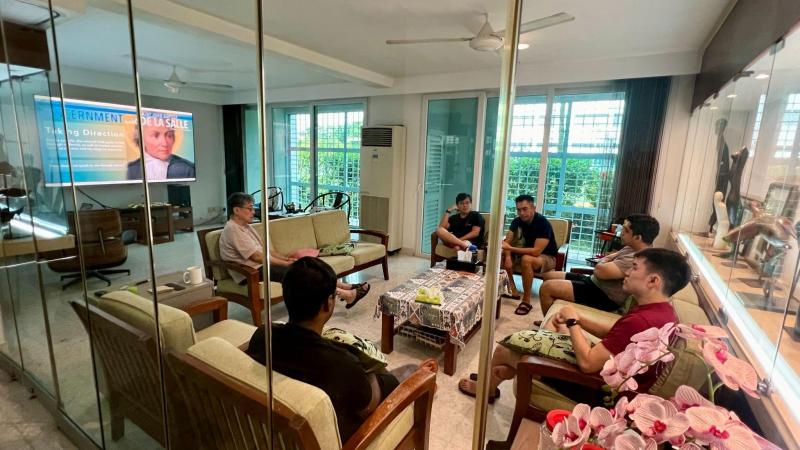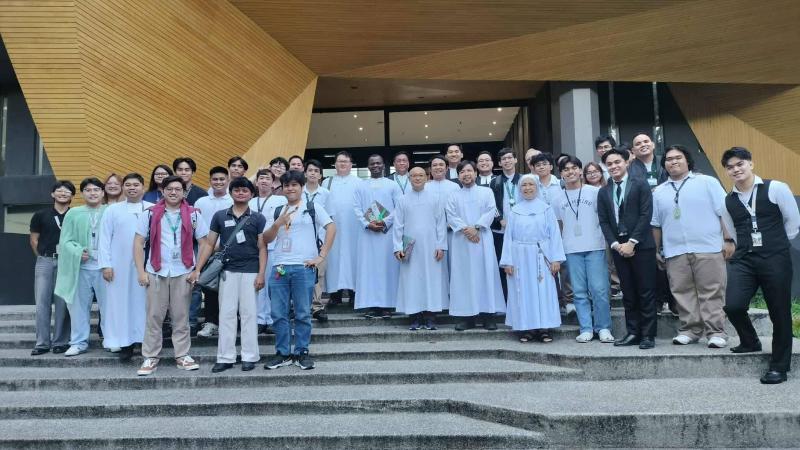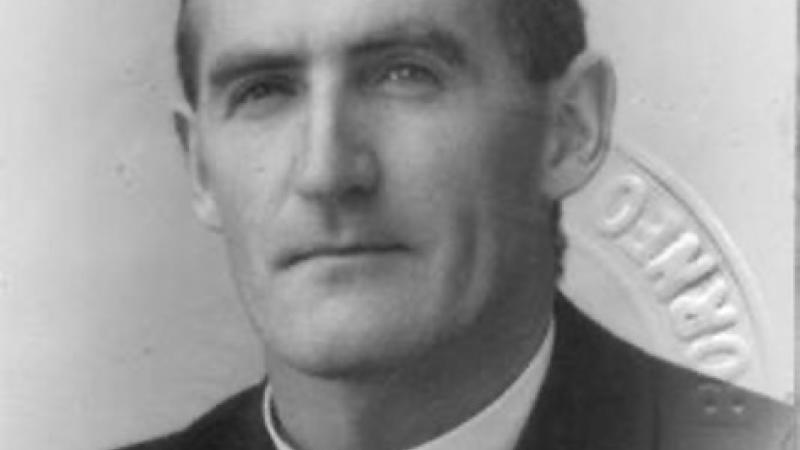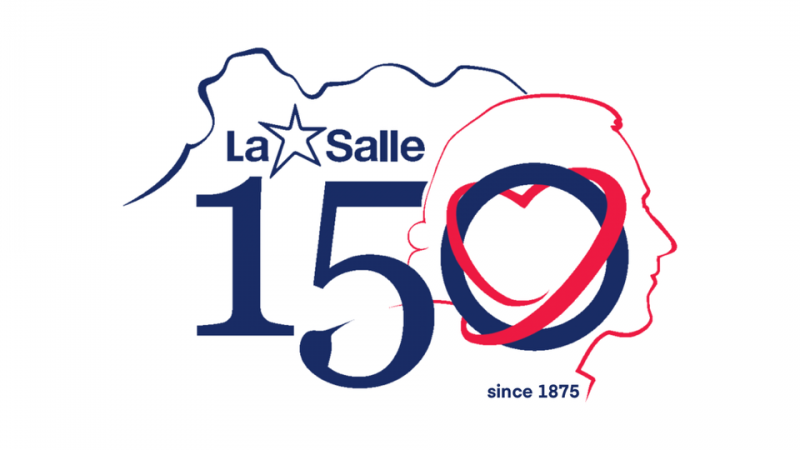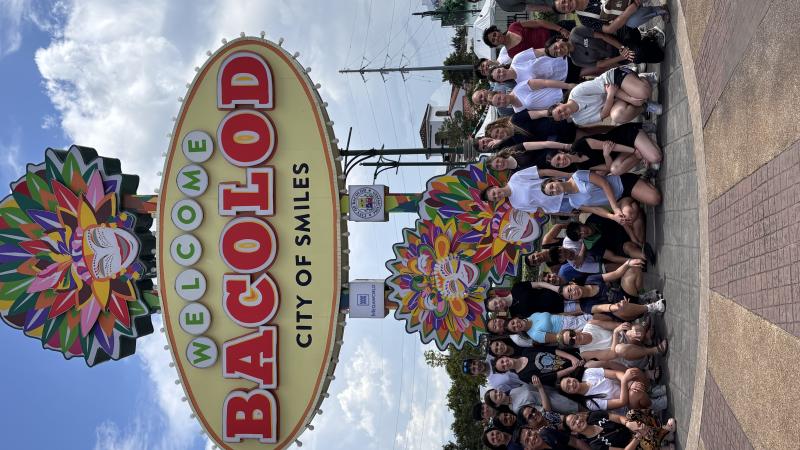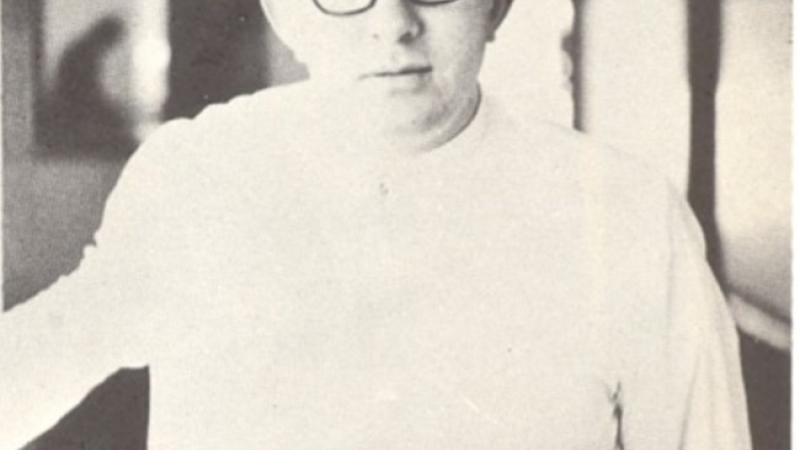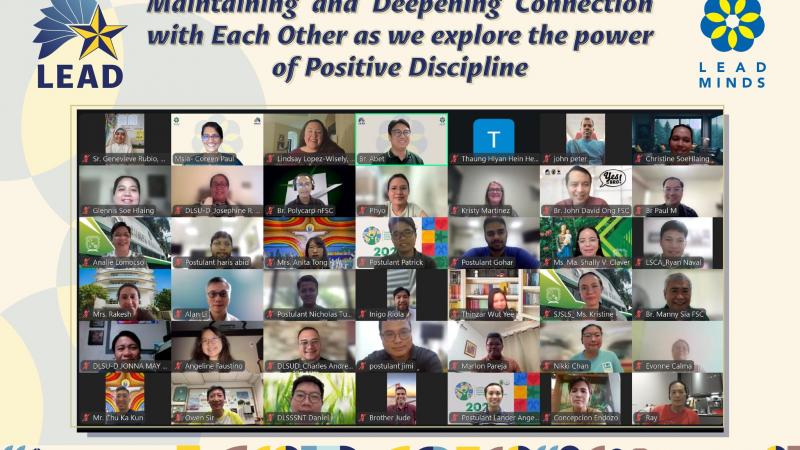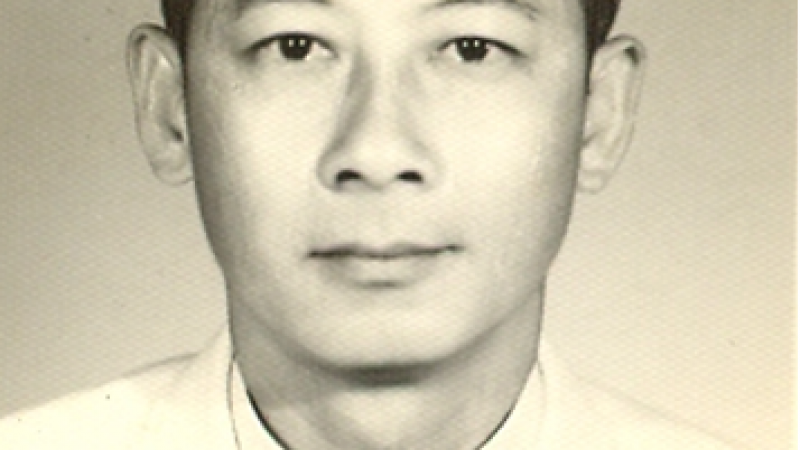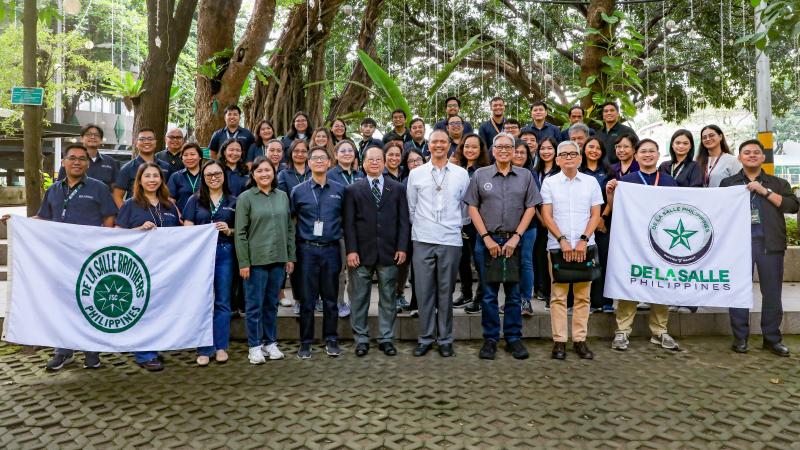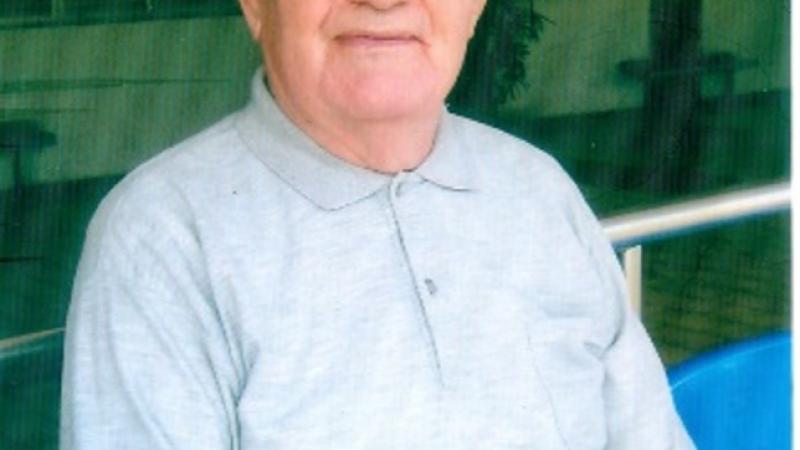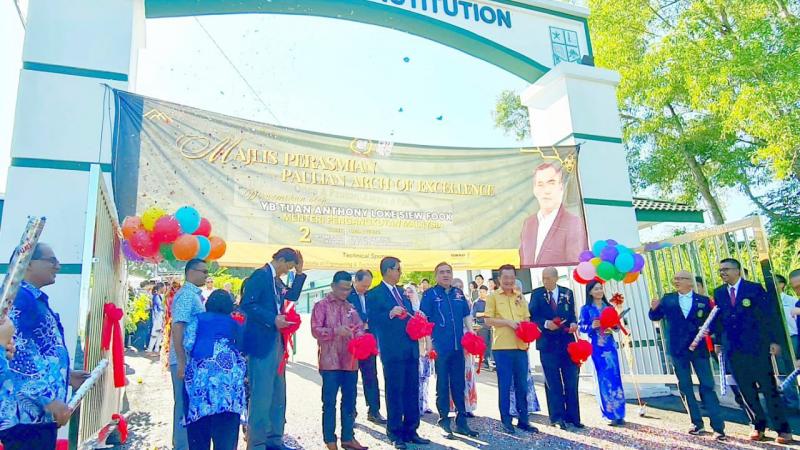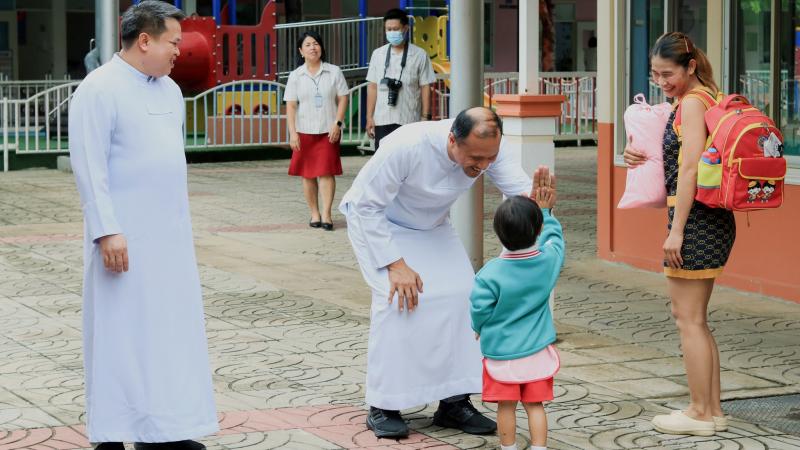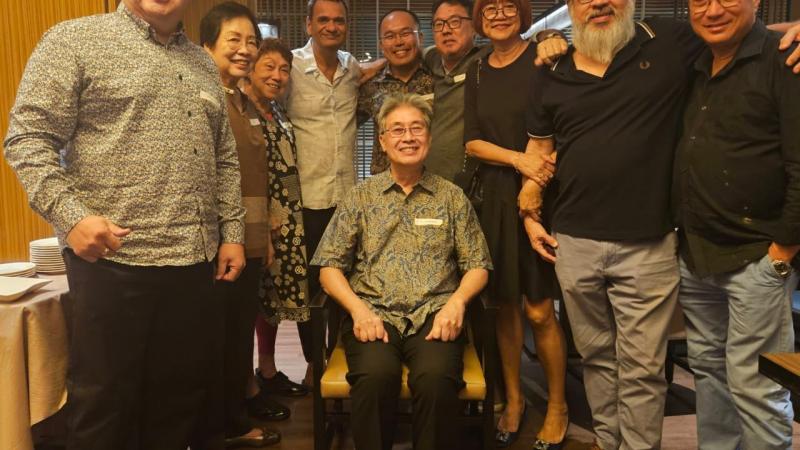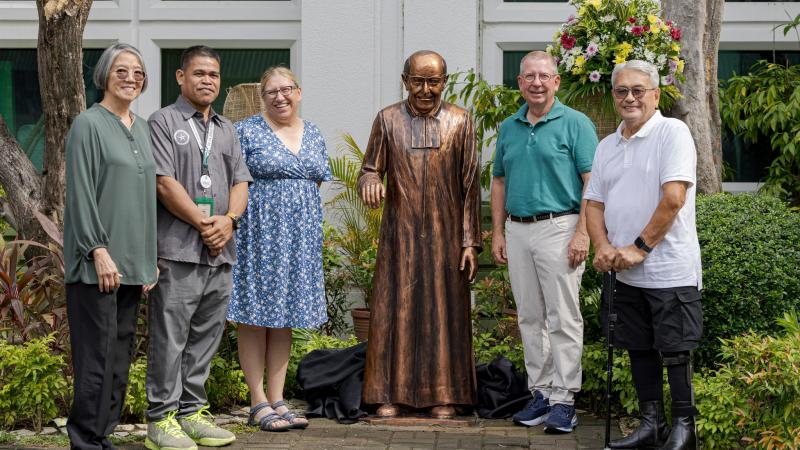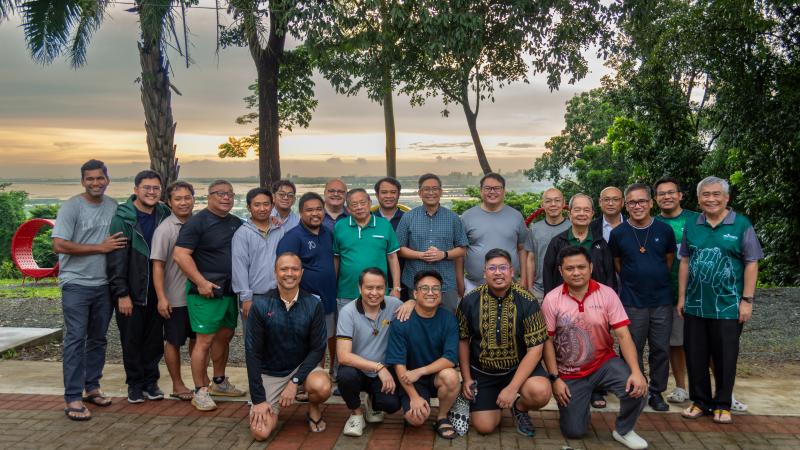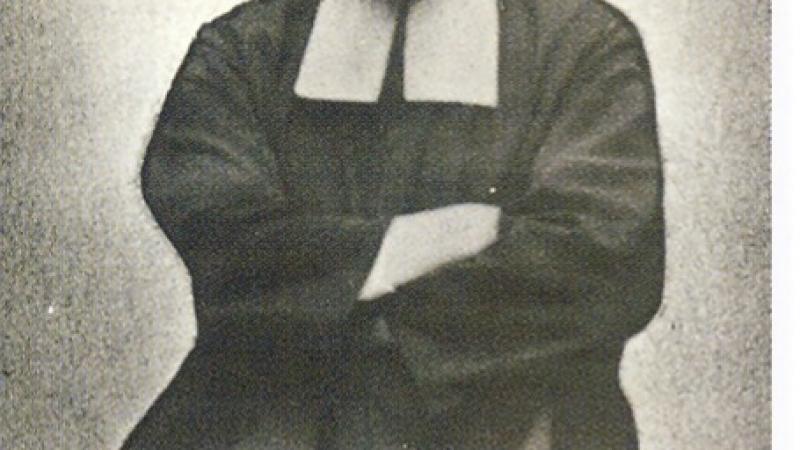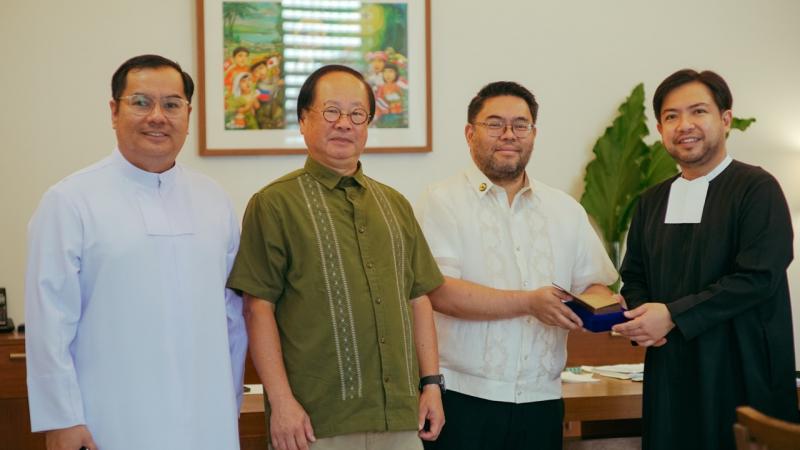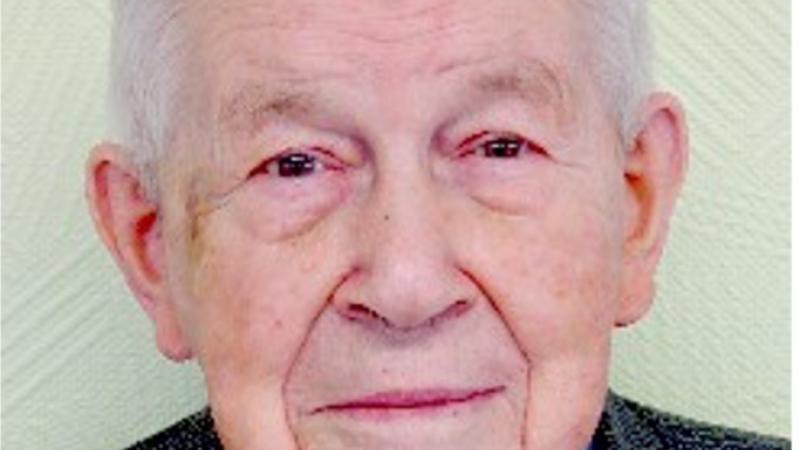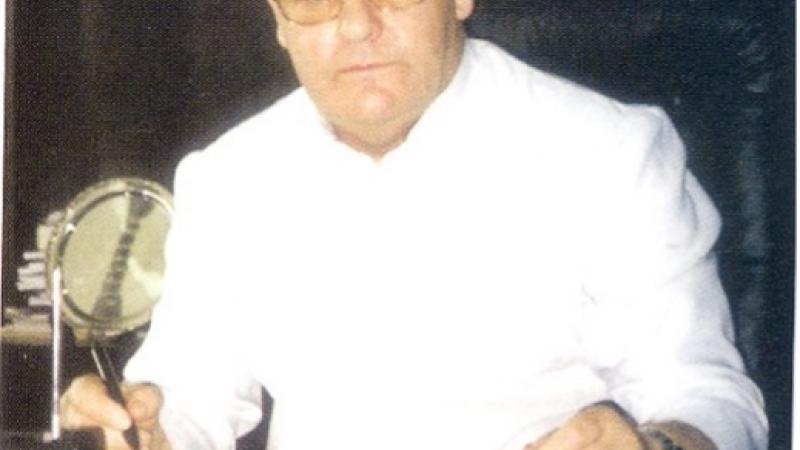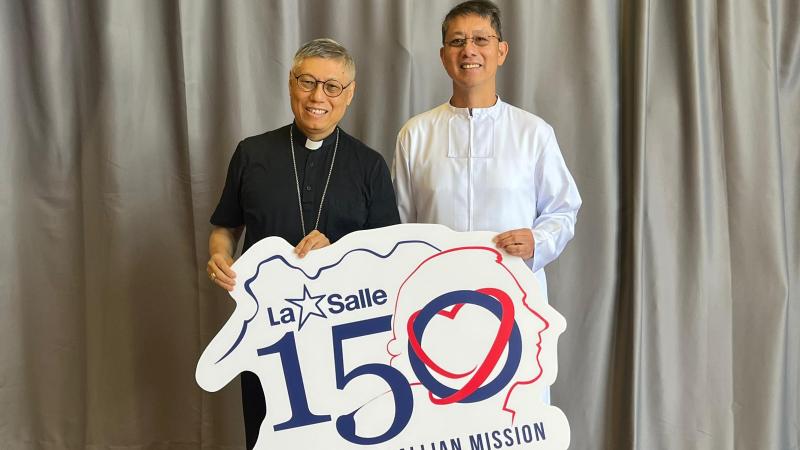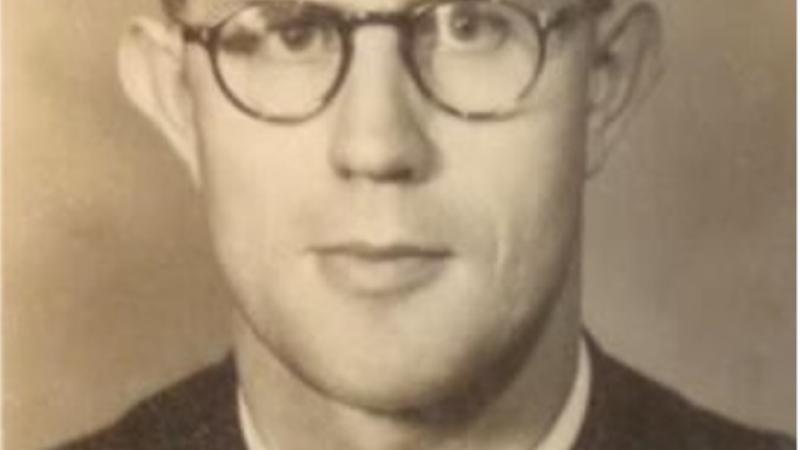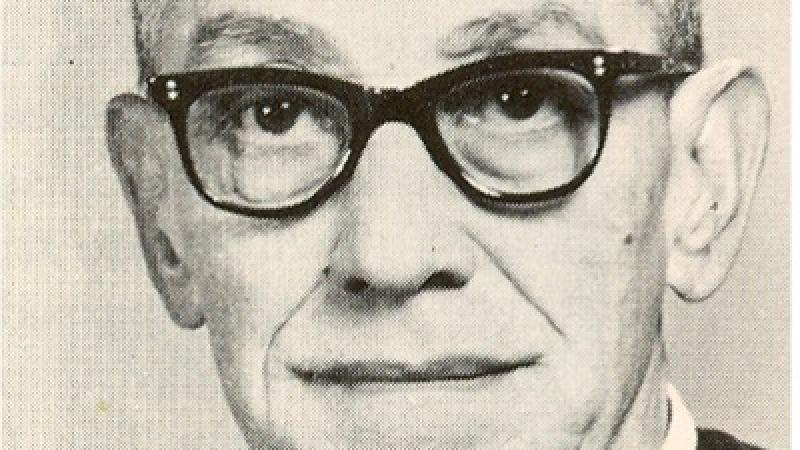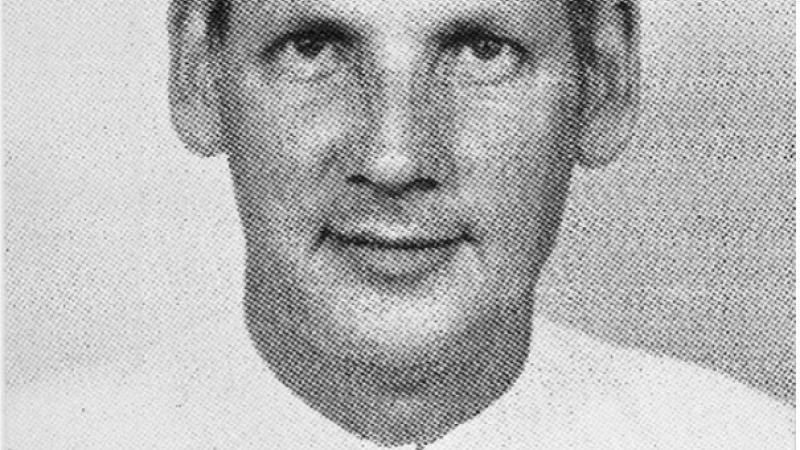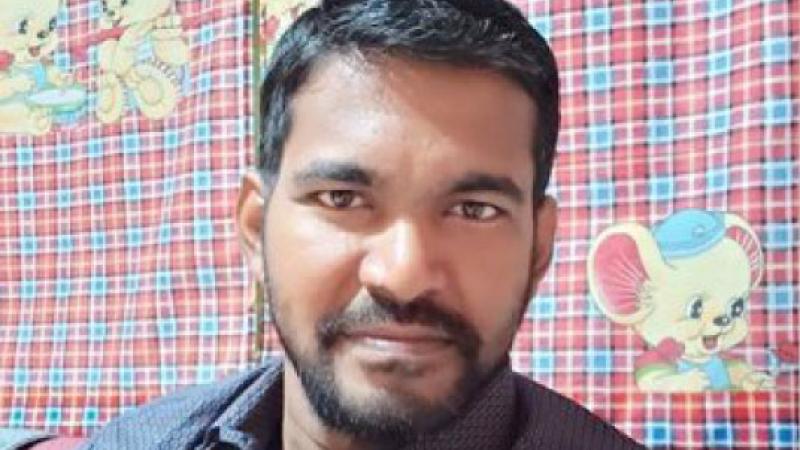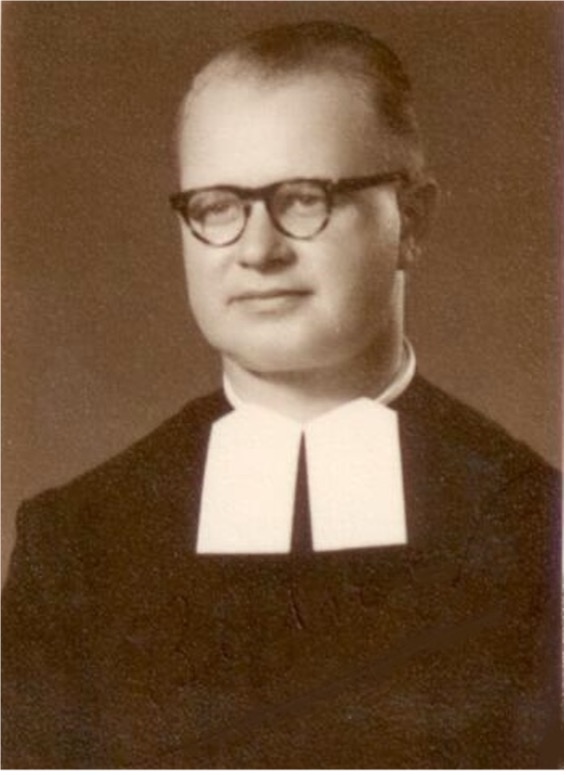
Originally published in The Gateway Issue No. 42 (October 2012)
Brother Ladislaus was a man of deep religious conviction. His whole life was a response to his vocation as a Brother to which he was faithful for sixty-eight years. He was an example of inculturation long before that word came into vogue, having seemingly adapted himself thoroughly to the ways of the different countries where he taught. As the scriptures have it, he was gentle as a dove yet wise as a serpent, wise with the wisdom that comes from long and varied experience. At the same time he was proudly patriotic, felt strongly about his long exile, regretted that he had never been able to teach children in his own country and when he did return home at last (as a French citizen) his emotions were too deep for words.
Joseph Bednar was born in Dolna-Krupa, Republic of Slovakia, on 28 August 1915. It is an area of fertile soil, gently rolling hills and forests. He was given the name Joseph at baptism, Joseph being the name of his maternal grandfather. He was the fifth child, all boys: John, Francis, Paul and Michael, who died very young. Later there were two more boys, Michael and Ernest, and a girl, Pauline, who lived only a couple of weeks. Joseph never saw her because by that time he was pursuing his vocation in Belgium.
His was a happy childhood, centred on his family, the church and the school. For several years the family lived with the grandparents. It was Joseph’s job to buy his grandfather's tobacco – something that would be frowned upon these days. Once he tried the pipe and found it unpleasant but he would indulge occasionally in a cigar. He was very proud of his brothers and of their achievements, fiercely loyal and protective even. His cousin, Paul, was a constant companion.
As an altar boy, Joseph revelled in the annual round of the liturgical year: the singing of the Passion during Holy Week; the annual parish church feast for which the geese were fattened; the singing of the Te Deum on the feast of Saints Peter and Paul to mark the end of the school year; the pilgrimage to a shrine of Our Lady. Daily Mass, visits to the Blessed Sacrament, saying the Rosary and making the Way of the Cross stayed with him the rest of his life. And the familiar local greeting; "May Jesus be praised. Forever!" found an echo when he became a Brother: “Live Jesus in our hearts. Forever! ”
His first year at the kindergarten, run by the Augustinian Sisters, was a disaster. He was graded 5 for everything and a grade 5, as far as school goes, was not a good idea. He had not liked to say that he could not see the blackboard properly because of his very weak eyesight, an affliction from which he was to suffer all his life. He had great admiration for Sister Hermelanda who helped him to lose some of his shyness and be more spontaneous. They kept in touch until the beginning of the war in 1939.
Outside school, life was a mixture of fun and hard work: swimming in the river; running around in bare feet; playing football under the cherry trees, enjoying the snow with a sledge and skating. And there was the harvest-time and the threshing when he worked long hours with his family and neighbours; and the two dozen goslings he looked after until his younger brother was old enough to take over. An annual event was the killing of the pig, about which he could go into details.
Something attracted Joseph to the religious life and in 1928, at the age of thirteen, he left home for Lembecq, Belgium, to begin his formation as a De La Salle Brother. His studies in the Juniorate were interrupted by treatment to his eyes and he began to wear glasses. These were four happy years, nonetheless, and they remained vividly in his memory. Joseph received the Habit of the Brothers on 6 October 1931 and became known as Brother Ladislaus Boniface. The change from your family name was meant to indicate a change of direction in life, a conversion of the heart to God. Lots of his friends always shortened the name to "Laddi". At the end of the one year Novitiate he made first vows.
The Scholasticate, a place for studies, was made in Dover, England, from 1932 to 1934. Later he would complain a little about the lack of suitable English course-books for adults who were studying for the Oxford Senior with five compulsory subjects requiring a credit pass to qualify for exemption from London Matriculation. But the lovely surroundings of his formation house made up for a lot. Again, he began to feel the stirrings calling him to a missionary life in the East and he requested this. His wish was granted.
After a quick visit home in the summer of 1934 Brother Ladislaus got his first taste of the East when he was sent to Ceylon (Sri Lanka) and he remained there for most of the next thirty years. Acclimatisation was difficult. There was the unrelenting heat, the early morning walks, the mosquitos and mosquito net over the bed. The delay in the adoption of the white robe replacing the darker and heavier black meant that he would be in a lather of sweat after every lesson.
But he looked back on those years in Sri Lanka with a well- deserved pride and sense of achievement. They were all seen in rosy glow: everything was first class, larger than life, biggest and best, unequalled anywhere. He taught any number of subjects. Although he did some coaching of cricket and ran athletics meetings, in truth he was no gamesman. At the same time he was studying for his Honours degree. Life was demanding and exhausting but "I loved my work and my community and was happy in my vocation."
In 1949 he was involved in an abortive attempt to go home after a twenty years absence. While he was making arrangements in Paris, he met a knowledgeable person who exclaimed: “But where is your clergyman collar?" Brother Ladislaus made him aware that he was preparing to go behind the Iron Curtain where a Roman collar might cause problems. This was accepted as a reasonable excuse for collar and tie. However, the journey home was not to be. His mother advised him not to try as he would not be allowed to leave the country again. It was a bitter pill to swallow. Instead he was sent to Cambridge to study. He enjoyed his time there, from 1949-1951. He took out a B.A. General degree in 1951 in French, History and International Law.
Then it was back again to Sri Lanka where he was assigned as Vice Principal to St Anne’s College, Kurunegala from 1951 to 1963. During this time, in 1953, he also took out a B.A.Honours degree in History from London University. A short stint in De Mazanod College was followed by a transfer to Hong Kong.
This was Brother Ladislaus’ comment on leaving Sri Lanka: "I was sorry to leave a country and a people I loved. I had been successful as a teacher wherever I taught. I loved my pupils. The political situation made it impossible to continue in my work. 1 always thought I would lay my bones in Sri Lanka. But at the age of 49 I was dying to get back to class. I was happy in all the communities I lived in and I got on very well with all the Brothers. This kind of fine community spirit I was going to miss, at least partly, in my future journeys. On my way to Hong Kong I used to think over my happy days in Ceylon, while contemplating the bright starry sky of the equatorial night. Somehow I was not apprehensive of the future.” This was in January 1964 and he arrived in Hong Kong on the 19th of that month.
In Hong Kong this "poor continental", as he would sometimes call himself, was put teaching Religion, English and History, first in La Salle College, Kowloon, (1964-1969) and then in St Joseph’s College on Hong Kong Island, (1969-1974). He spent 5 years teaching in each school. He never shirked work and would cheerfully take extra lessons when teachers were sick. He mixed easily with both staff and students and filled the role of school counselor before such a term was heard of. His lessons were well organized and delivered in a lively, interactive way. The students were happy because they were really learning. Since he loved music, he would unfailingly show up at orchestral practices and when the boys were performing in choir. Listening to classical music in particular was in his soul.
We are fortunate that there is an Education Department Inspection Report on Brother Ladislaus for the month of October 1966. He was inspected for a lesson in History and the inspector had this to say:
“In the presentation of the lesson, the teacher’s questioning technique was highly commendable – by his questions he skillfully directed the pupils in supplying the main facts. Almost everyone was given the opportunity to answer a question. The blackboard was used efficiently for important names and brief headings. Occasionally the teacher drew examples in everyday life which had significant correlation with the subject. On discussion with the teacher after the lesson I discovered that regular tests were given to check the efforts of the pupils.
The teacher spoke clearly and the English was within the grasp of the class. Response was spontaneous and the pupils did not seem to have difficulty in their expressions. This was a very stimulating lesson.”
Any teacher would surely be happy with such a report.
Brother Ladislaus’ influence began to spread well outside the classroom. For whatever reason, he developed a reputation as an expert in giving talks about ‘life’. He was invited to various schools- boys, girls and co-ed- and word spread. When talking about matters sexual he would tell the Brothers that he often started his talks with the line: “All parts of the body are holy.” He would then speak clearly and precisely on the Christian approach to sexuality. The schools often invited him back. His popularity probably had something to do with his cheerful personality. Nothing would get him down.
We can now quote from his life story: "Thus my decade of teaching in the Crown Colony came to an end. I was sorry to leave Hong Kong, my equal number of years of work at both Colleges were very happy both in the community and in the classroom. But for reasons of my own and those beyond my control I had to say good bye. Although they were already enjoying their summer vacation, many pupils came to see me off at the airport and some even continued to write to me in Monaco. God bless them”.
Teaching in Monte Carlo, Monaco, was a very different ball game to what he had experienced in the East. Some of the pupils did not show the same eagerness for learning but Brother Ladislaus eventually mastered the situation. He enjoyed teaching the young ladies in the commercial class, who were destined to be top personal secretaries. He also taught the brilliant apprentice footballers of Monaco. But French policy was for retired Brothers not to stay working in a community but to transfer to a house of retirement. Brother Ladislaus did not want this and decided he was not interested in staying in Monaco any longer. He arranged to join the then District of England and was forever grateful to the Brother Visitor, Leander, for agreeing to his request. And so, he left Monaco in 1985. “I had no regrets. I had worked conscientiously in Monaco for ten years.”
He spent the remainder of his life in semi-retirement in the north of England, at La Salle Hopwood Hall Training College, De La Salle College, Salford and St John’s College, St Helens. His blood brother, Brother Ernest, had been a lecturer in Physics at the Training College. Brother Ladislaus is well remembered as good fun to have around, always cheerful, smiling, sensitive, kind and thoughtful. There was a bubbling enthusiasm about him which was infectious. He had certain endearing turns of phrase like: first class; good old man; good for them; come, come see. A frequent request was, “Please, Brother Director, give me some lovely music”. This meant Mantovani or Strauss. He loved listening to music and, after laser-treatment on his eyes, he took to reading – especially history, European history.
He charmed the ladies of the parish with his gentle ways, his quivering smile and his patronage of their card stall. He would produce a card for every occasion and arrange for the community to sign. “Come, come see”, he would say, inviting me to approve of his latest purchase. If the sacristan was missing, he would step in. “That fellow has no idea how to keep things clean!” Then it was into the garden wearing an apron and with basin and scissors to collect flowers to put around the chapel. He would produce packets of exotic oriental foods and make himself lunch. Gherkins went with everything. His idea of a big celebration was the enjoyment of a cigar and a glass of brandy at the end of a feast day. He called it a “drop of something.” All in all, he enjoyed his retirement years. As he put it himself: “I enjoy my retirement and keep myself intellectually busy, trying to grow old gracefully.”
Brother Ladislaus was a man of deep faith, of prayer, devotion to the Blessed Sacrament, to Our Lady and the Rosary. There was a loving acceptance of his vocation that took him through all those years away from home, that guided him in his devotion to the Christian and human education of young people and through sixty-eight years as a De La Salle Brother. We thank God for his fidelity and dedication to the Lasallian mission in Sri Lanka, Hong Kong, Monaco and England.

